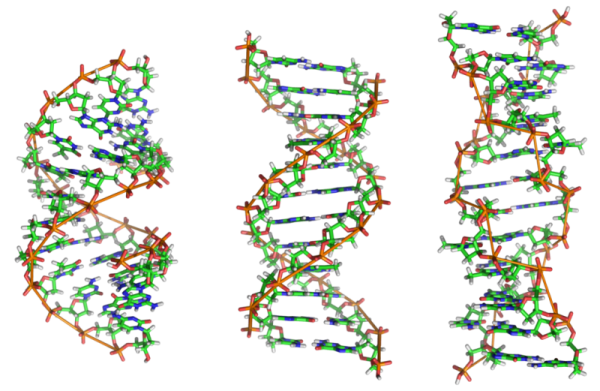WASHINGTON –Angelina Jolie made headlines last year when she had her breasts removed after tests revealed she carried a gene known to cause breast cancer. That type of gene-specific approach to medical care is just the beginning, according to researchers at the National Institute of Health.
New treatments target an individual’s genetic profile and even help patients dodge a genetic bullet by preventing genetic conditions before they occur.
Harvard Medical School Professor Raju S. Kucherlapati, part of the National Institute of Health’s Human Genome Project to better “map” and understand human genetic profiles, has studied the genetics of cancer tumors. According to his research, it turns out many cancer tumors have a specific genetic profile and researchers are working to target treatment options based on these profiles. By following the specific pathway of a cell when it becomes cancerous, experts can develop new therapies.
“There are currently drugs in development that are targeting these pathways,” Kucherlapati said.
This means that instead of undergoing vigorous chemotherapy for tumors that delivers medicine to “kill” not only the mutated cancer cells but also the healthy cells, treatment can be tailored specifically to the mutated gene sequences that make up the tumor.
“We are beginning to understand the many genomic changes… and the role in tumor surveillance,” Kucherlapati said.
Already, medical researchers have deepened their knowledge of the genomic make-up of many types of cancer tumors including stomach, bladder, thyroid, breast and colonic cancers.
But it’s not just cancer tumors that researchers may be able to crack the genetic code to find cures, it’s also diseases that develop in babies before they are born.
“They are mutations that just spontaneously happen. It’s no one’s fault, nothing is done during pregnancy, but they happen,” said
Dr. Katherine Rauen, who studies pathway genetic syndromes at the University of California and recently received the 2013 Presidential Early Career Award for Scientists and Engineers for her work.
She focuses on what are known as RASopathies, a term she helped coin. She and her team have determined that up to one in every 1,000 people are born with genetic conditions coming from these RASopathies, conditions that can be as minor as low-set ears or as major as a heart defect.
They have developed therapies specifically for these RASopathies that can be administered before birth. For example, a pregnant mother carrying a genetic pathway that could cause her child to be born with a heart condition could be treated before the child is born.
“The future of health care is in genomic medicine,” Rauen said.

